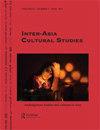Dire-Straits: Taiwanese TV screenwriters in the neoliberal and authoritarian 2010s
IF 0.4
4区 社会学
Q4 ANTHROPOLOGY
引用次数: 0
Abstract
ABSTRACTThis article investigates the working life of Taiwanese TV screenwriters who have commuted across the Taiwan Strait since the 2010s to supplement previous research on Taiwanese creative workers in China. My analysis is divided into three parts: (1) the screenwriters’ work structure and problems; (2) how their self-enterprising ethos pushes them to adhere to the Chinese state-market regime; and (3) the competitions in the screenwriting field, their solutions to the problems, and their attitudes toward building collective solidarity to empower themselves. This article argues that the Taiwanese screenwriters working across the Taiwan Strait have three common features: self-enterprising, self-censorship, and self-interests. Their competition has resulted in internal rivalry, jealousy, and personal attacks. So far, their resolutions to problems are individually based, and they do not change the structural relations that the screenwriters collectively face.KEYWORDS: Chinacultural and creative workerneoliberalismprecarityself-precarizationTaiwanese TV screenwriters AcknowledgementsThis research is approved by the Institutional Review Board at the researcher’s affiliated institution. The ethics approval number is C108042. The interviewees were fully informed about this research when they provided informed consent. The author wishes to thank all of the people who I interviewed. Different versions of this article were presented at the Inter-Asia Cultural Studies Society Virtual Conference (26–30 July, 2021) and at the Taiwan-based Chinese Communication Society Annual Conference (18–19 June, 2022). I wish to thank Leo Ching, Doobo Shim and Fang-chih Irene Yang and all of the reviewers who commented on the earlier versions of the article.Special termsTableDownload CSVDisplay TableNotes1 Taiwanese national health insurance and pension scheme were established in 1995 and 2007.2 Sara and her family moved to Beijing in January 2018 but returned to Taipei in July 2019. Celia and Andy were asked to live in their Beijing company’s housing during 2018 and 2020. They returned to Taiwan before the COVID-19 pandemic and have lost contact with the company ever since.3 Kat and Vivi told me that Chinese companies are their agents representing them in the Chinese screenwriting labor market.Additional informationFundingThis research was supported by the Ministry of Science and Technology, Taiwan [grant number MOST 109-2410-H-030-002].Notes on contributorsJocelyn Yi-Hsuan LaiJocelyn Yi-Hsuan Lai (PhD) is Assistant Professor of the Department of Communication Arts at Fu Jen Catholic University, New Taipei City, Taiwan. Her research focuses on the impacts of neoliberalism on Taiwanese television culture and workers. She has published essays in Taiwan’s academic journals and English anthologies. She coguest-edited a special issue on Confucian values and television in East Asia in Continuum: Journal of Media & Cultural Studies.海峡:2010年代新自由主义与威权主义下的台湾电视编剧
摘要本文以2010年代以来往返两岸的台湾电视编剧的工作生活为研究对象,作为对台湾在大陆创作工作者研究的补充。我的分析分为三个部分:(1)编剧的工作结构和存在的问题;(2)他们的自我进取精神如何推动他们坚持中国的国家市场体制;(3)编剧领域的竞争,他们对问题的解决方案,以及他们对建立集体团结以赋予自己权力的态度。本文认为两岸台湾编剧有三个共同的特点:自我进取、自我审查和自我利益。他们的竞争导致了内部竞争、嫉妒和人身攻击。到目前为止,他们对问题的解决都是基于个人的,并没有改变编剧集体面临的结构性关系。关键词:中国文化创意工作者新自由主义不稳定性自我不稳定性台湾电视编剧致谢本研究已获所属单位机构评审委员会批准。伦理批准号为C108042。受访者在提供知情同意书时已被充分告知本研究。作者要感谢我采访过的所有人。本文的不同版本分别在Inter-Asia Cultural Studies Society虚拟会议(2021年7月26日至30日)和台湾中文传播学会年会(2022年6月18日至19日)上发表。我要感谢Leo Ching、Doobo Shim和Fang-chih Irene Yang以及所有对本文早期版本发表评论的评论者。1台湾的国民健康保险和养老金计划分别于1995年和2007年建立。7.2 Sara和她的家人于2018年1月搬到北京,但于2019年7月返回台北。西莉亚和安迪被要求在2018年和2020年期间住在他们北京公司的房子里。他们在新冠肺炎疫情前返回台湾,此后一直与该公司失去联系Kat和Vivi告诉我,中国公司是他们在中国编剧劳动力市场的代理。本研究由台湾科学技术部支持[批准号MOST 109-2410-H-030-002]。作者简介赖以萱(博士),台湾新北市辅仁天主教大学传播艺术系助理教授。她的研究重点是新自由主义对台湾电视文化和工作者的影响。她曾在台湾学术期刊和英文选集上发表文章。她在《媒体与文化研究杂志》上客串编辑了一期关于东亚儒家价值观和电视的特刊。
本文章由计算机程序翻译,如有差异,请以英文原文为准。
求助全文
约1分钟内获得全文
求助全文
来源期刊

Inter-Asia Cultural Studies
Multiple-
CiteScore
0.90
自引率
20.00%
发文量
22
期刊介绍:
The cultural question is among the most important yet difficult subjects facing inter-Asia today. Throughout the 20th century, worldwide competition over capital, colonial history, and the Cold War has jeopardized interactions among cultures. Globalization of technology, regionalization of economy and the end of the Cold War have opened up a unique opportunity for cultural exchanges to take place. In response to global cultural changes, cultural studies has emerged internationally as an energetic field of scholarship. Inter-Asia Cultural Studies gives a long overdue voice, throughout the global intellectual community, to those concerned with inter-Asia processes.
 求助内容:
求助内容: 应助结果提醒方式:
应助结果提醒方式:


